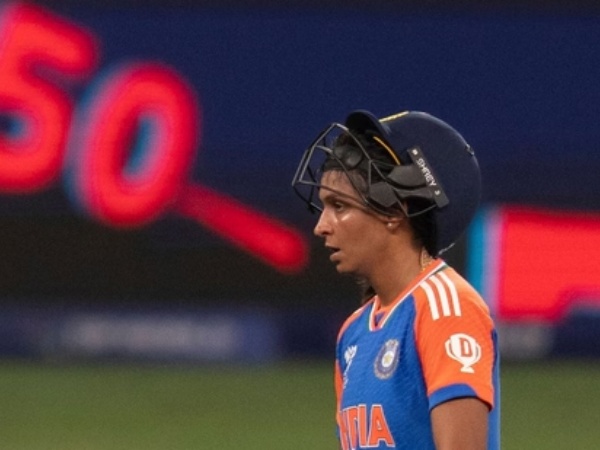Harmanpreet Kaur to be dropped as India Women's captain post T20 World Cup 2024? Here's the update
India's women’s cricket team had a disappointing run at the Women’s T20 World Cup 2024. Their campaign started on a low note with a defeat against New Zealand, which set a challenging tone for the tournament. Following that setback, the team managed to secure a narrow victory over Pakistan, but the inconsistency continued. While they achieved a win against Sri Lanka, it was overshadowed by a crucial loss to Australia, which ultimately led to their elimination from the group stages. This series of performances has raised concerns within the Board of Control for Cricket in India (BCCI) regarding the team's leadership under skipper Harmanpreet Kaur. The mixed results and inability to maintain momentum have put Kaur’s future as captain under scrutiny. The BCCI is now evaluating the overall performance of the team, considering not only the outcomes of the matches but also the strategies employed and the players' execution on the field.
As the tournament progresses, the pressure is mounting on Kaur and the coaching staff to address the evident gaps and develop a more cohesive and competitive team. With key decisions looming, the BCCI is poised to reassess its approach, and the leadership structure may face significant changes as they look to rebuild and strengthen the Indian women's cricket team for future challenges.
Reports indicate that the BCCI will convene a meeting with the selection committee and head coach Amol Muzumdar to deliberate on Harmanpreet Kaur's future as captain of the Indian women's cricket team. This discussion is expected to occur prior to the announcement of the squad for the upcoming three-match ODI series against New Zealand. While concerns about the team's performance have arisen following their underwhelming campaign at the Women's T20 World Cup 2024, sources suggest that Kaur’s position in the playing lineup remains secure. However, there may be implications for the support staff, as it is rumored that some contracts might not be renewed following the tournament.
The BCCI’s evaluation will likely focus on the team’s overall performance, strategies, and execution during the World Cup, assessing both the leadership and the coaching methods employed. With the ODI series against New Zealand on the horizon, the meeting will be pivotal in determining the direction of the team and any potential changes that may enhance their competitiveness in future fixtures. The outcomes of this discussion could significantly impact the structure and strategy of the Indian women's cricket team moving forward.
“The BCCI will certainly discuss whether to have a new captain on board going ahead. The Indian board has provided everything that the team wanted, and we feel it’s high time a new face leads the team going ahead. Harmanpreet will continue to be an important member of the team, but the BCCI feels it’s time for transition,” a source in the know was quoted as saying by News18.
Harmanpreet Kaur has been at the helm of the Indian women's cricket team since her appointment as skipper in 2016. Under her leadership, India has achieved significant milestones, including reaching the semi-finals of the Women's T20 World Cup in both 2018 and 2023, and making a remarkable run to the final in 2020. Her captaincy has been marked by resilience and strategic acumen, contributing to the team's growth on the international stage.
Throughout her career, Harmanpreet has established herself as a key player for India, consistently delivering impactful performances. Despite the recent struggles in the Women's T20 World Cup, her contributions to the team cannot be overlooked. She has played a crucial role in shaping the team's identity and has been instrumental in inspiring younger players to rise to the occasion.
As discussions about her future as captain loom, it's essential to recognize the legacy she has built and the foundation she has laid for Indian women's cricket. Her experience and leadership qualities will continue to be vital for the team's aspirations moving forward, as they look to bounce back from recent disappointments and reclaim their competitive edge in upcoming tournaments.
